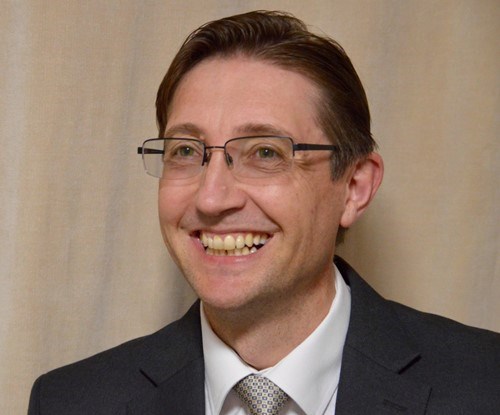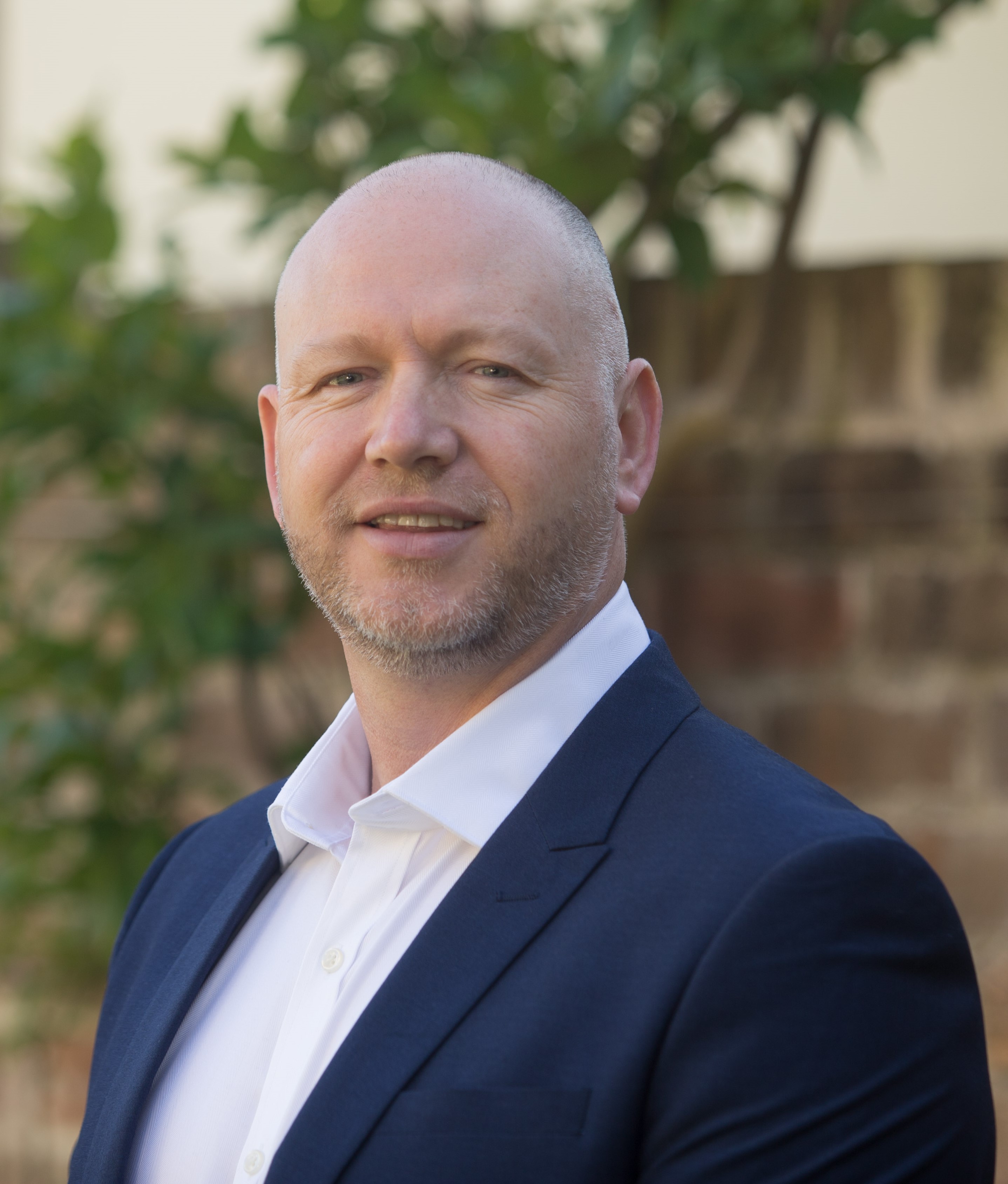Mark Turner: VP Risk Management, Airborne & Space Systems Division Leonardo MW Ltd
Mark Turner
VP Risk Management
Airborne & Space Systems Division
Leonardo MW Ltd
How did you get your job?
In 2006 I was working as the Project Office Manager at Leonardo’s Basildon site (at that time named Selex Galileo). This role required supporting several projects developing and manufacturing various aerospace electronic and electro-optical components. During this time it became evident that project managers required greater support with the implementation of risk management. Whilst the company had both processes and tools for risk management, some project managers were struggling with the more sophisticated statistical modelling and interpreting the results. Following meetings with our Engineering Director in which I presented my plan to improve cost and schedule adherence using better application of the risk management tools, it was agreed that I would dedicate myself to supporting the projects as the site risk manager.
The Engineering Director agreed that I should attend the Fundamentals of Risk Management (FoRM), which was the first time that I had heard about the IRM. Following the FoRM course, I had a greater appreciation of the different aspects of risk management, including completely new concepts about corporate governance risk. Based on this foundation, I decided that I needed to learn more about the subject, and my company agreed to sponsor me to take the Certificate course, which I completed in 2007.
In 2008 the position of Head of Internal Audit in the UK became vacant, and I successfully applied for the role which came with a significant promotion. Traditionally this position had only been filled by Finance Managers, but it had been agreed at the Board Level that a greater emphasis on risk management was required, and it just so happened that I was the only qualified risk manager to apply.
Whilst I greatly enjoyed my time in Internal Audit, I always told people that I was a risk manager working in Internal Audit (rather than an auditor). Then in early 2015 following some internal reorganisation, the role of Director for Enterprise Risk Management was created and assigned to a director of our parent company in Italy. I saw this as an opportunity to return to a more project risk focused job, and so I held a meeting with the ERM Director and argued the case for a dedicated risk manager to support his work in the UK, even going so far as to provide him with a job specification and my CV. Two weeks after this meeting, the Finance Director came to my office and told me that they had discussed my proposal at the Board meeting, and that the job was mine as soon as my replacement could be found. Although this took a further six months, in July 2015 I was appointed Head of Risk Management in the UK. My job evolved until in early 2017 I became the Vice President for Risk Management in the Airborne and Space Systems Division of what is now Leonardo.
As a leader in the risk management function, I decided that I needed to enhance my professional risk qualifications further, and so my company agreed to sponsor me to complete my International Diploma in Enterprise Risk Management with the IRM.
What is your focus as a Vice President of Risk in an International Company?
The role that I have created in Leonardo is focused on two significant areas. The first is training of the managers in the company in understanding and using risk management to enhance the schedule and cost achievements of their projects. This has been developed on two fronts. One is the ‘practitioner’ training, where I have developed training courses to teach Project Managers, Engineering Managers and project support staff to think systematically about their risk management, and to use statistical analysis to support their decision making process. And the second is directed to the Senior Management to educate them in understanding the meaning of the information presented to them by the practitioners, and to robustly challenge the projects about their risk management actions. This has fundamentally changed the dynamic of risk management in the UK company, ensuring that proactive decision making around risk activity is a key topic on the project review agenda. To date I have trained nearly 500 managers across the UK.
My second main focus has been on developing a software package which makes risk management much easier for the practitioners. Based on Microsoft Excel and written in visual basic, the program is designed to take risk data and present information on a dashboard in a way that the Project Managers can easily interpret. It has a Monte Carlo engine of my own design to produce density distribution and cumulative probability curves directly from the risk register in real time. In addition it also presents cost benefit analysis, risk burn-down charts, and categorisation analysis all within the same dashboard. It also has an innovative data entry graphical user interface which short-cuts the process of entering three point estimation, minimising the number of data entry fields. Using an “Agile” approach to the development of this tool, I have been working with the practitioners to enhance it over the last 18 months to a point where it has now superseded the much more expensive tools previously used. In 2016 I was nominated for an internal innovation award for the tool.
How did you become the Chair of the Innovation Special Interest Group?
I have always been keen on computers and gadgets. So much so that I graduated with a degree in Technology from the Open University in 2001, receiving a Diploma in Innovation & Design along the way. Considering this back ground, I was naturally drawn into the IRM Innovation Special Interest Group (SIG), where in 2012 I was invited by them to give the key note presentation on Artificial Intelligence at the IRM Big Data Symposium. From that time, I have been a very active member of the group, taking the lead on a couple of projects. When in 2016 I was asked if I would consider being the Chairman of the Innovation SIG, I was very happy to say yes. Since then I have overseen the steady growth of the group into a very dynamic team. In June 2017 we held a symposium on innovation in reputation risk which was very successful. I believe that to truly benefit from the membership of an institution like the IRM, it is necessary to get involved with a group, either a SIG or a regional interest group (RIG). Once you start to make friends in a group like this, many new opportunities present themselves.
What advice would you give someone looking to work in Risk Management?
If I was to give advice to anyone wanting to work in the field of risk management, I would say that taking controlled risks with your own career is a powerful demonstration of your skill. Recognising opportunities, or even creating your own opportunities, has been essential in my career progression. I am fortunate to mentor a number of graduates within Leonardo, and I often tell them that only one person truly cares about their career, and that is them. They must take risks and seize opportunity whenever it presents itself. It has been said that it often more effective to seek forgiveness rather than asking for permission, and I have judiciously applied this rule to my career a number of times.
The second element is networking and getting to know people. Knowing who knows what within an organisation is a powerful skill, and many people come to me not because of what I know, but because I can point them in the direction of people who will know. Risk management is, in my opinion, more about understanding people than it is about understanding the risks themselves. People will know the risks, and have some idea about the solutions. A good risk manager is able to facilitate making this knowledge explicit, and helping the organisation turn this knowledge into commercial advantage.
Top Tips:
- Always have a plan, but don’t be afraid to change it.
- Listen more than you speak. You will find out more, and your words will have more impact.
- Never stop learning, either formally or informally






